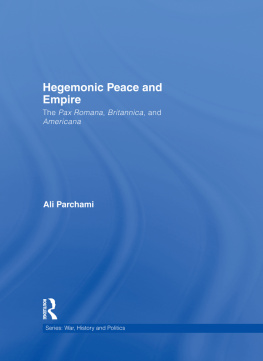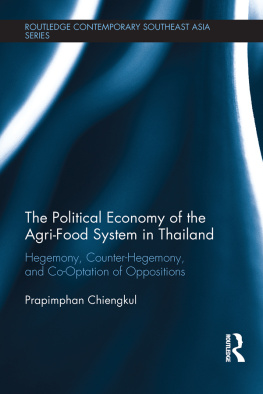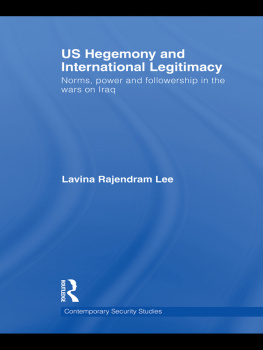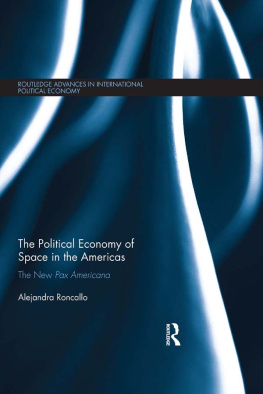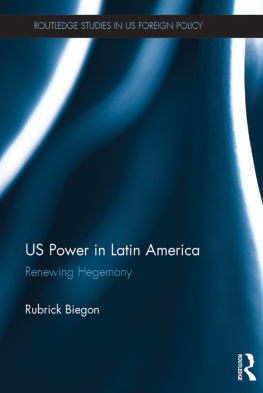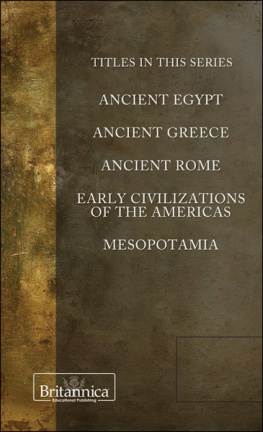Hegemonic Peace and Empire
This book examines the language and the ideology of the Pax Romana , the Pax Britannica , and the Pax Americana within the broader contexts of hegemony and empire. It addresses three main themes: a conceptual examination of the way in which hegemony has been justified; a linguistic study of how the notion of pax (usually translated as peace) has been used in ancient and modern times; and a study of the international orders created by Rome and Britain.
Using an historiographical approach, the book draws upon texts from Graeco-Roman antiquity, and sources from the nineteenth, twentieth, and twenty-first centuries to show how the pax ideology has served as a justification for hegemonic foreign policy, and as an intellectual exercise in power projection. From Tacitus condemnation of what he described as creating a wilderness and calling it peace, to debates about the establishment of a Pax Americana in post-Saddam Husseins Iraq, the book shows not only how the governing elite in each of the three hegemonic orders prescribed to a loose interpretation of the pax ideology, but also how their internal disagreements and different conceptualizations of pax have affected the process of empire-building.
This book will be of interest to students of international history, empire, and International Relations in general.
Ali Parchami is a Senior Lecturer in the Department of Defence and International Affairs, Royal Military Academy Sandhurst. He has a DPhil in History from Oxford University and was a lecturer in Politics at Exeter College, Oxford.
Series: War, history and politics
Series Editor: Jeremy Black
Trade, Empire and British Foreign Policy, 16891815
Politics of a commercial state
Jeremy Black
Citizens, Soldiers and National Armies
Military service in France and Germany, 17891830
Thomas Hippler
America, War and Power
Defining the state, 17752005
Edited by Lawrence Sondhaus and A. James Fuller
Quests For Power
The world order since 1500
Jeremy Black
Hegemonic Peace and Empire
The Pax Romana , Britannica , and Americana Ali Parchami
Hegemonic Peace and Empire
The Pax Romana, Britannica , and Americana
Ali Parchami
First published 2009
by Routledge
2 Park Square, Milton Park, Abingdon, Oxon OX14 4RN
Simultaneously published in the USA and Canada
by Routledge
270 Madison Ave, New York, NY 10016
Routledge is an imprint of the Taylor & Francis Group, an informa business
2009 Ali Parchami
Typeset in Baskerville by Wearset Ltd, Boldon, Tyne and Wear
Printed and bound in Great Britain by TJI Digital, Padstow, Cornwall
All rights reserved. No part of this book may be reprinted or reproduced or utilized in any form or by any electronic, mechanical, or other means, now known or hereafter invented, including photocopying and recording, or in any information storage or retrieval system, without permission in writing from the publishers.
British Library Cataloguing in Publication Data
A catalogue record for this book is available from the British Library
Library of Congress Cataloging in Publication Data
A catalog record for this book has been requested
ISBN10: 0-415-49254-8(hbk)
ISBN10: 0-203-87929-5(ebk)
ISBN13: 978-0-415-49254-6(hbk)
ISBN13: 978-0-203-87929-0(ebk)
Contents
| Introduction |
PART I
'Peace through victory' |
PART II
'The savage wars of peace' |
PART III
The peace of the 'benign imperium' |
I would like to thank many people at the University of Oxford, particularly: Dr John Darwin; Prof. Alan Bowman; Prof. Martin Ceadel; Dr Alex Pravda; Dr Michael Hart; Dr Simon Price; Mrs Francis Walsh; Dr John Walsh; Dr Rowena Archer; and, above all, Dr Yvonne L. Cornish.
I would also like to express my gratitude to Prof. James Piscatori; and thank Prof. R.F. Holland; Dr Thomas Davies; the Reverend Andrew Brown; Prof. Victor and Mrs Nuovo; and my colleagues at the RMAS: Dr Paul Latawski; Dr Bjorn Mller-Willie; Dr Donette Murray; and Mr Andrew Orgille and his library staff.
The views expressed in this book are entirely those of the author and do not represent the views of the RMAS and the MOD.
Hegemonic Peace and Empire examines how ancient Rome, imperial Britain, and the United States used the concept of pax (usually translated as peace) to define and justify their hegemonic foreign policies. At a time when empire has become a fashionable topic of discussion and analogies between the United States, Britain, and Rome abound in scholarly works and in the popular press the themes raised by this book should stimulate scholarly debate on imperial ideology and appeal to both an academic audience as well as the general reader. Its distinction lies in its nuanced consideration of the three systems: offering both specific insights into Rome, Britain, and the United States, as well as a general advance in our consideration of the broad notions of empire and hegemony. Crossing the boundaries of antiquity and modern history, and History and International Relations, the book essentially tells the story of a concept, which though formulated in the ancient world, continues to have a significance in foreign policy debates at the dawn of the twenty-first century. It is an examination of the system of ideas and beliefs that informed the worldview of the Roman elite, British imperialists and their critics, and American Neoconservatives and their opponents. By exposing the nature of pax , we can follow the development of its language and ideology, and reach a better understanding of the different conceptions of hegemonic orders. The book will reveal Romes singular ideological approach in the establishment of hegemony, and will discuss the ambiguities and dichotomies that dominated the discourse between the governing classes of the British Empire, and the equally divisive debates of US foreign policy analysts today.
Many polities and organizations have been associated with the notion of pax the Pax Christi , the Pax Hispanica , the Pax Germanica , the Pax Sovietica to name a few. Why have ancient Rome, imperial Britain, and the United States been picked out as worthy of special treatment? They are to a large extent self-selecting because they are, arguably, the most successful examples of hegemony in world history. Moreover, there are clear connections between them: the late Victorians and Edwardians drew extensively upon the Roman analogy to formulate the British Imperial Idea. The United States has also been described as the New Rome, and as Britains successor in being the worlds policeman. American foreign policy analysts continue to look back on the Roman and British models when assessing US foreign relations. It is unsurprising, therefore, that the expressions Pax Romana , Pax Britannica , and Pax Americana have appeared prodigiously in numerous books and articles. The Latin word pax has been translated into English as peace. Pax Romana , Pax Britannica , and Pax Americana are, therefore, considered synonyms for the Roman Peace, the British Peace, and the American Peace. In their Latin form these expressions have become so familiar that they are seldom conceptually defined and even less consistently applied. The ancient variant is usually represented as an overarching period of imperial peace, while the Britannica and Americana tend to be characterized as hegemonic regimes or, increasingly, as systems of the international political economy. Most, if not all citations of these expressions ignore the etymological origins of the term pax , and pay little or no attention to the complex imperial ideology that informed and underlined the notions of Pax Romana and Britannica .

